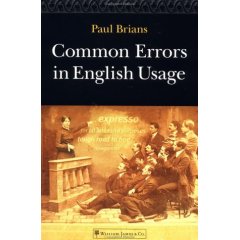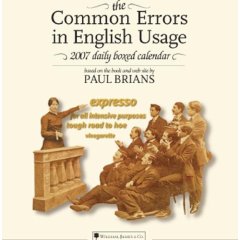|
 =
Comprehensive Manual of Courtroom Procedures =
Comprehensive Manual of Courtroom Procedures
Reviewer: The Rebecca Review
“Legal photography is photography used as pictorial
communication evidence in a court trial in order to convey the
observations of a witness more fully, more effectively, and more
accurately than the witness’ verbal testimony alone. Legal
photography provides the court and the jury with a clearer
comprehension of the physical facts that could be be obtained
otherwise.” –Benjamin J. Cantor
Benjamin J. Cantor has given us the gift of his life
experience in the “Courtroom Guide for Non-Lawyers.” This is
a very helpful book for those who find themselves unfamiliar
with the legal ramifications which take place during trials in
courtrooms across America.
After his daughter and editor, Ruth Roche, served as a juror
in several court trials, she mentioned to her dad that if she
only had more information about what to expect in a courtroom,
her experiences would have been more enjoyable. This inspired
Mr. Cantor to seek out more information on the subject, without
much success. As a result, he decided to write an essential book
for anyone who finds themselves in the position of litigant,
witness or juror and has found themselves lost in the thicket of
legal terminology and procedures.
“It’s important because It’s amazing in this
democratic society of ours that so many average citizens find
the courtroom an enigma.” – Benjamin J. Cantor
This book will also be helpful for doctors, engineers,
accident reconstructionists, and anyone else who may serve as an
expert witness in a court trial. Mr. Cantor graduated from
engineering school in 1931 and in the midst of the Great
Depression, there were few engineering jobs. He decided to
reconstruct his long-time hobby in photography and make an
avocation a vocation. This gave him the needed money for tuition
for law school and helped him attain his long-range goal of
becoming a patent attorney.
By the time he received his law degree in 1937, he had
already established a photography business specializing in legal
photography. He provided photographs for attorneys to assist
them in preparing for their lawsuits.
Mr. Cantor founded and operated the Boston Photo Service
which specializes in forensic photography for over 40 years. He
has had a 50-year career in legal photography, during which he
also testified in court as a expert photographic witness in
hundreds of trials.
“I became aware of the many imperfections and perplexities
in the judicial system of our legal process, especially in the
courtroom.” –Benjamin J. Cantor
Since his retirement, he has been a consultant to the Boston
Photo Service and has also been conducting seminars on legal
evidence photography and the role of the expert witness in a
court trial.
He has delivered lectures on forensic photography at Boston
College Law School, Suffolk University Law School, Massachusetts
Bar Associateion and many other legal forums. He is also the
co-author of the treatise Photographs in Civil Litigation and
has written numerous articles on forensic photography for
professional law journals.
Features:
Interview with the Author – great idea!
488 Legal Terms
81 Suggestions for being a good witness
Information on Direct and Cross-Examination of a Photographer
– This gives you a good idea of what to expect if you are
called to testify as an expert witness.
Examples of Effective use of Photographic Evidence
My favorite section was the suggestions for being a good
witness. Mr. Cantor includes a quote from Mark Twain that reads:
“If you tell the truth, you don’t have to remember
anything.”
Contents:
1. Criminal Law and Civil Law
2. Participants in a Court Trial: Litigants, Lawyers, Judge,
Witnesses, Jurors, Court Officers (or Bailiffs), Court Reporters
(Court Stenographers), Court Clerk, Law Clerk, Spectators.
3. Civil Trial Court Procedure
4. Photographic Evidence vs. Oral Testimony
5. Expert Witness
6. Equality Before the Law
7. Small Claims Court
8. Juvenile Court
9. Perjury in the Courtroom
I’ve already sent a copy of this book to a friend who I
think may find it to be useful. Your friends will thank you if
they find themselves as a witness and you present them with a
copy of this book. I also thought this book would be extent for
authors who are doing research on the subject of courtroom
procedures.
Basically a hands-on guide for people who, at some time in
their lives, are called upon as jurors or witnesses in a court
trial. Also could be used as a textbook on the subject for
police training and law students to help clarify some of the
mysteries encountered in our legal system of justice.
Also look for:
The Role of the Expert Witness in a Court Trial by Benjamin
J. Cantor
Photographs in Civil Litigation

Common Errors in English Usage
 Practice Makes Perfect, December 22, 2006
Practice Makes Perfect, December 22, 2006
Should that be "Practise" or did I use the right
spelling?
In the United Kingdom, "practice" is the noun, "practise"
the verb; but in the U.S. the spelling "practice" is
commonly used for both, though the distinction is sometimes
observed. ~ pg. 161
The entries in Paul Brians' "Common Errors in English
Usage" are organized alphabetically and provide hours of
amusement for anyone who loves language. This book brought back
memories of childhood, in those moments where the use of
"borrowed" and "lend" were taught at school.
Then there is the every present annoyance of
"its/it's." Who has not made a mistake while spelling
lightening and lightning?
Humor abounds as in the picture of man and bear with the
caption: "For a moment he was confused - was he being
attacked by a bear presently or currently?"
Some of the most intriguing entries include:
envious/jealous
Mauve
immaculate conception/virgin birth
disburse/disperse
jealous/envious
hysterical/hilarious
who/whom
that/which
You can be jealous of your boyfriend's attraction to other
women, but you're envious of your boyfriend's CD collection. ~
pg. 74
This book discusses redundancies, like "DVD disk," but
doesn't discuss the difference between CDs and CD's. One if of
course possessive while the other is plural.
If I said chai tea, would that be a redundancy? Actually,
redundancy also means being unemployed. I still like saying chai
tea, but this book says it is pointless and it is also called
masala chai. As this tea grows every more popular, I'm sure the
way we ask for tea will correct itself.
Why would anyone use sacred instead of scared? This book also
deals with common typos. You have to love uses like "same
difference." Why do they say "There is no such word as
"verbage" when I do find this word in an online
dictionary as "jargon." Of course, an urban dictionary
may send some people into a state of shock. The author cautions
against using nonstandard and obsolete words and says that just
because a word is in a dictionary, doesn't mean it is being
"endorsed."
If you tend to think up a lot of your own words or like to be
playful then some of the entries will make you feel a little
rebellious. For those who are longing to perfect their writing,
this book can be invaluable. Well, as they say practice makes
perfect although my first indication is to type "practise."
"Colour vs. Color" is a far less common usage problem,
although I must say that as a child, I was smacked on the hands
with a ruler for that one. I had apparently learned the word
"color" before moving overseas.
This book would make a perfect present for anyone interested in
language, will provide lots of laughs and will bring back
memories from childhood. Frankly, I found this to be a fun book.
OK, so now I can't use "Frankly" anymore. This book
says that I have just abused the English language.
Sentences beginning with this word are properly admissions of
something shocking or unflattering to the speaker; but when a
public spokesperson for a business or government is speaking, it
almost always precedes a self-serving statement. ~ pg. 88
If you have ever lived overseas or have tried to use foreign
words, this book unveils faux pas and British/U.S. Spellings.
~The Rebecca Review

Common Errors in English Usage 2007 Calender
 Desert/Dessert, December 22, 2006
Desert/Dessert, December 22, 2006
That impoverished stretch of sand called a "desert"
can only afford one "S." In contrast, that rich gooey
extra thing at the end of the meal called a "dessert"
indulges in two of them. ~ May 18, 2007
It only took trying to write a cookbook to help me figure out
that the use of "desert" and "dessert" were
one of the typos I would encounter quite often. Who has not
wanted to type "expresso" instead of
"espresso."
The eccentric humor throughout this calendar makes you smile.
Should you use "foresee" or "forsee?" It
gets even more fun when you consider using words like "supposably,
supposingly or supposedly."
People who spell this French-derived word "nieve" make
themselves look naïve. ~ August 21, 2007
Truncated versions of old sayings are clarified, foreign words
demystified and pronunciations of words like vinaigrette are
explained.
Overall, the Common Errors in English Usage is a humorous
calendar with illuminating information for the word lover in
you. Perfect for gifts!
~The Rebecca Review
|